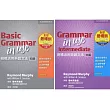Language standardization is problematic because it imposes the dominant group’s linguistic variety as the only correct one and promotes the idea of unit thinking, i.e., seeing the world as consisting of bounded, internally homogeneous units. This volume examines intentional practices to subvert such processes of language standardization (what we call counter-standardization practices) in language education and other contexts. By suggesting alternative classroom pedagogies, language reclamation processes for indigenous populations, and discourses about (mis)pronunciation, this volume explores more liberatory approaches: the post-unit thinking of language.



 天天爆殺
天天爆殺  今日66折
今日66折 




























 博客來
博客來 博客來
博客來 博客來
博客來 博客來
博客來 博客來
博客來